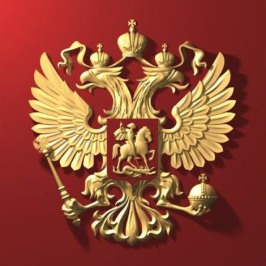The European Union has carried its policy aimed at total discrimination against Russians to absurd lengths: according to the European Commission's updated interpretation, all individuals, except EU citizens and their immediate family members, are prohibited from importing into the EU, including temporarily and for personal use, goods, inter alia cars, that are subject to anti-Russian import restrictions.
Brussels is referring to Article 3i of the EU Council Regulation 833/2014 prohibiting “to purchase, import, or transfer, directly or indirectly, goods which generate significant revenues for Russia thereby enabling its actions destabilising the situation in Ukraine, as listed in Annex XXI into the [European] Union if they originate in Russia or are exported from Russia”.
The “Frequently Asked Questions” document released by the European Commission contains the widest possibly interpretation of the afore-mentioned article. For instance, it clarifies that it is not relevant whether the vehicles are imported to the EU for private or commercial use. Allegedly, the import ban applies to all vehicles as long as they are falling under CN code 8703 (motor cars and other motor vehicles principally designed for the transport of <10 persons, incl. station wagons and racing cars) and are originating in or are being exported from Russia. Moreover, as interpreted by European officials, besides the cars manufactured in Russia, the prohibition also covers the vehicles registered in our country or having a Russian license plate. Brussels would not account either for the duration of the possible stay of the imported goods in the EU, nor for the customs proceedings under which they will be placed (release for free circulation or temporary admission).
Previously the European Commission stated in its “Frequently Asked Questions” document that the prohibition on EU “import” or “transfer” applies irrespective of the final destination of the goods: be they destined for EU Member States or a third country.
Interestingly, this time the eurocrats ignored the clarification included in the text of the Regulation. It provides that the ban on imports to the EU applies to the goods “which generate significant revenues for Russia” and thereby are allegedly “enabling its actions destabilising the situation in Ukraine”. The question of how the import of relevant goods into the EU for private use benefits our state whatsoever can hardly be answered by the most inquisitive minds of the EU. Well, a European Commission spokesperson was not able to do so during the press-briefing of 11 September. Nor was he able to explain the difference between jewellery and cars. We would recall that back on 27 July 2022, answering a question regarding the gold import ban, the European Commission clarified that “the prohibition does not apply to golden jewellery for personal use of natural persons travelling to the European Union or to members of their immediate families travelling with them, as long as it is owned by those individuals and not intended for sale”. Meanwhile, the EU representative has forced a remark that the aim of the sanction measure “is to deprive the Kremlin of the revenue it needs to finance its war”. Can anyone in Brussels, who is in a sane state of mind and not yet completely mad in their pursuit of "inflicting a strategic defeat on Russia", explain how Russians travelling to the EU in their own cars can bring "substantial revenue to Russia"?
The European Commission's clarifications are not legally binding. At the same time, the "Frequently Asked Questions" document is certainly regarded in the EU as an "authoritative" interpretation of sanctions regulations, since it is Brussels that is responsible for the uniform application of EU legislation and exercises general control over the activities of European capitals in this area. And the latter can always refer to the explanations of Brussels bureaucrats. Therefore, it cannot be ruled out that tomorrow the customs authorities of the most ardent EU Member States, acting under the cover of the European Commission's comments, will not start confiscating phones, laptops, clothes and toiletries from Russians…
Obviously, the above-mentioned clarifications are aimed at making it virtually impossible for Russian citizens to enter the European Union in the absence of direct flights and tougher visa requirements. And we are pretty sure that Brussels will not find an answer to the simplest question: to what extent are such restrictive measures consistent with the basic "values" of the EU, including the right to property and the principle of non-discrimination?























